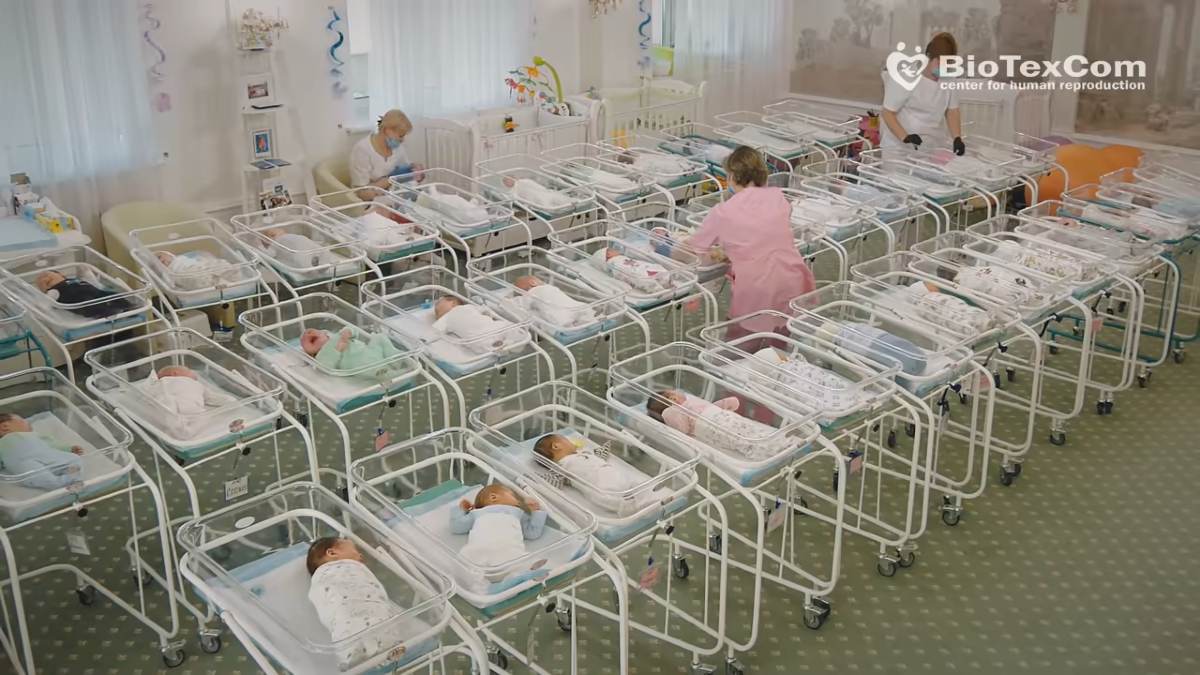OPINION
As I reported recently, Greek police have raided a commercial surrogacy clinic in Crete, arresting staff and taking newborn babies into protective custody. Initial reporting in the Australian media focused almost exclusively on the “desperate” surrogate parents — many Australian — who were being “cruelly” denied the “happy” arrival of their “healthy babies” by Greek police. What prompted the raids in the first place was all but glossed over. What was happening to the impregnated women — most of them from poor countries — was almost totally ignored.
But emerging details are painting a very dark picture, in contrast to the “sunshine-and-happiness” narrative of the commercial surrogacy industry.
What has been exposed is, allegedly, a vile traffic in women’s bodies, in human puppy mills.
At least one surrogate mother from Georgia involved in the birth of a newborn baby to an Australian couple this month spent the bulk of her pregnancy in a dark flat, under prison-like conditions and ordered by her handler not to leave or talk to anybody.
The sunny narrative of the pro-surrogacy angle quickly evaporates under the harsh glare of scrutiny.
The grim lives of these young women, some still teenagers, have been exposed with the eight-month investigation and extensive police raid of the Mediterranean Fertility Clinic in Chania, Crete this month.
While two Australian families have been able to take their newborns from the hospital and are finalising documents to allow them to obtain an Australian passport to fly home, the future of the surrogates – the victims in this extraordinary story – is unclear.
Finally, the media begins to acknowledge that this industry, which treats women from poor countries as human incubators for people from wealthier countries: not just women unable to normally bear children, but gay men and the “too posh to push” rich.
If these were puppy mills, there’d be a concerted outcry from the chattering classes. But human mills have been treated to careful silence.
Certainly the reality for the surrogates is very different to the assurances given by the clinic’s leaders: director and gynaecologist, 73-year-old Ionnis Giakoumakis; embryologist and scientific director Danny Daphnis, 44; clinic secretary Katerina Dimotaki, 41, and; a 38-year-old woman known as the “fixer” who would liaise with the surrogates. All four are in a Greek prison on remand, and a complex trial is not expected to be listed for hearing until 2025 at the earliest. Another five have been released on bail.
The accusations against them are damning.
Police allege the women were brought to Crete under false pretences, and made to undergo hormonal treatments, egg extraction and insemination for surrogacy. This was made possible because foreign parents, especially those in far-flung Australia, would have the barest interactions with the surrogate mothers.
One surrogate is known to have undergone embryo transfer process 10 times before she became pregnant. Others had the highly uncomfortable egg retrieval procedures on at least four occasions, police have found.
This distancing of parents from the surrogates was a deliberate policy by the clinic, which meant in at least one known case involving an Australian couple, there were no contact details for their surrogate. They had to send messages to her through clinic “gatekeeper” Ms Dimotaki.
But, proponents will no doubt argue, that they were paid for enduring all that. Sure, and so are the women trafficked in prostitution. But how much, exactly, are these very young women paid, to pump out babies for other people?
The women were housed in 14 different apartment blocks around Chania, and paid €200-€600 ($300-$1000) a month for expenses. A baby bonus – usually another €2000-€6000 – was paid upon delivery of a healthy baby. The total payments of around $10,000-$20,000 were promoted as a chance for surrogates to financially “get ahead” in their own country, but after having one baby they would be under pressure to become a surrogate again.
The intended parents, meanwhile, would face costs for the “altruistic surrogacy program” of more than $150,000 and in some cases more than $200,000.
In the meantime, the surrogates were kept as virtual prisoners, living behind shutters, often four to a room. While they may not have been literal prisoners — the only time neighbours report seeing them is when one might occasionally duck across to the takeaway across the street — the women report living in fear of the man they called “the Georgian”. They were left under no illusions that they were to speak to no one and be seen rarely, if at all, outside the four walls of the “clinic”.
However, a local Greek newspaper interviewed one of the surrogates from an unknown eastern country. “If we did not comply we risked being sent back to our country, we were under constant surveillance,” the woman told Ta Nea. “Many girls I lived with were not mentally ready for pregnancy, some were clearly depressed’’ […]
Other surrogates were lured from Moldova, Bulgaria, Albania and Bulgaria. In the eight months of their investigation, police uncovered 182 women who had been used by the clinic. Seventy-one women had eggs removed and 98 women had became surrogate mothers. Some were used for both.
The Australian
The original 13 “cases of illegality” that prompted the police raids have already been expanded to 25.

